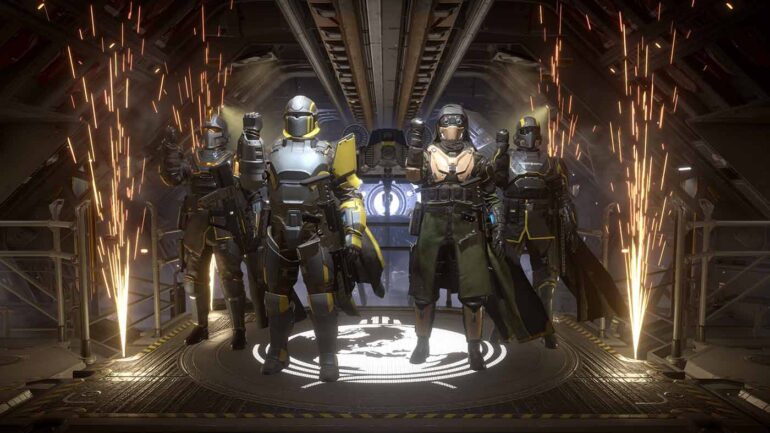At a point in time where the words “live service” are almost guaranteed to induce groans and eye rolls among players, a scrappy little AA experience by the name of Helldivers 2 has managed to find a level of success that’s seemingly taken everyone by surprise – including developer Arrowhead Game Studios and publisher PlayStation. It’s been so popular in fact, that the game’s servers were absolutely hammered in the early days and capacities needed to be raised significantly just to get new ‘divers through the door.
But how did this sequel to a somewhat low-impact isometric multiplayer action game manage to explode in a way that would make Super Earth’s most hard-to-please generals crack a satisfied smile? Obviously there’s an intrinsic appeal to shooting hordes of Mean Things with friends, as evidenced by the many other, similar experiences out there, but there’s a secret sauce in Helldivers 2 that I think has helped it cut through the noise. And that sauce has two key ingredients: Respect and Unseriousness.
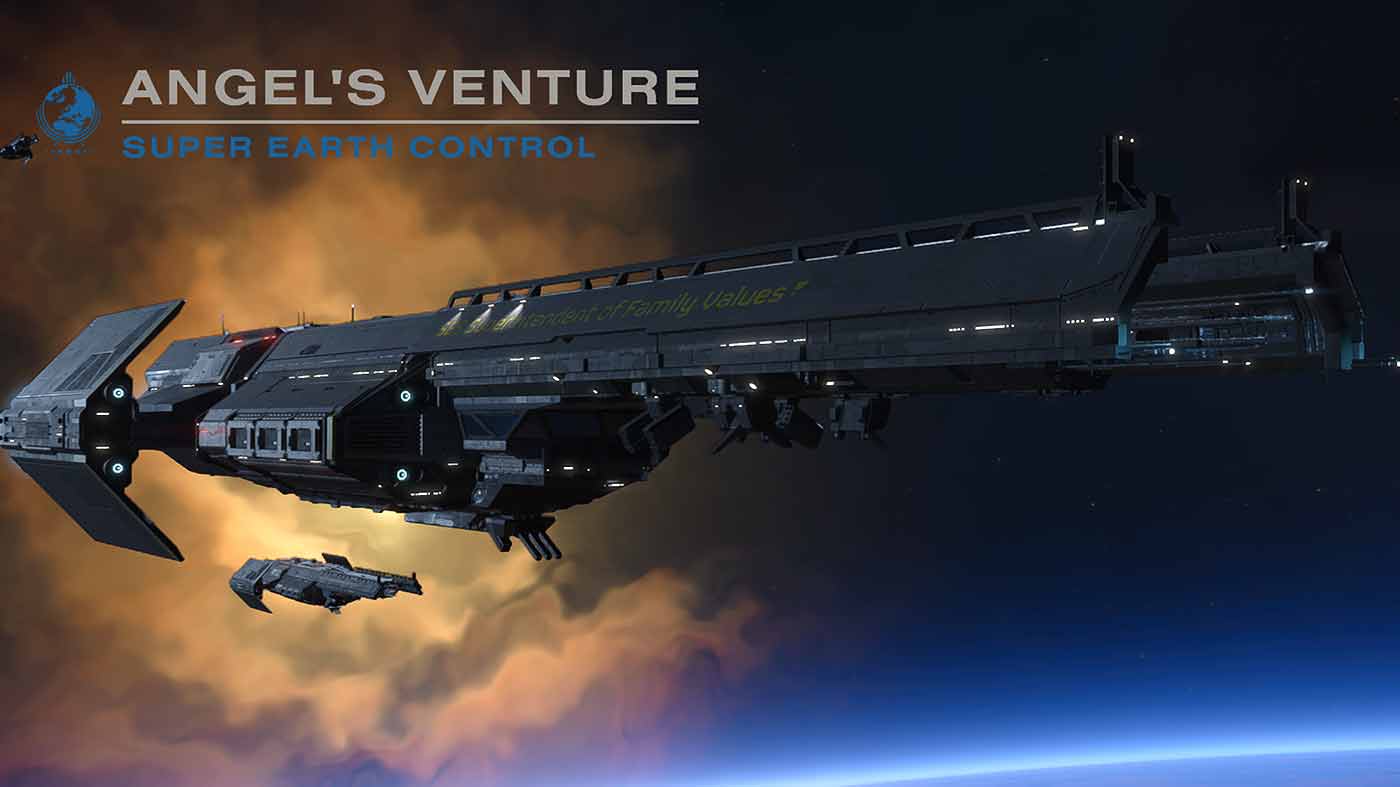
Looking at the finish to this concoction first, nothing struck me more in the first few hours of playing Helldivers 2 than how god damned goofy and Unserious it is. The most obvious point of comparison when it comes to the tone here is something like Starship Troopers, which many folks have pointed out, but it goes beyond just the satire of hyper-patriotism and militarised fascism. Like some other recent co-op experiences such as Lethal Company there’s also a pervasive element of slapstick tragedy, where heightened tensions or frantic action can lead to the unexpected and unintended deaths of players at the hands of enemies, the environment, teammates or even themselves.
Not only does an immediate uproar of laughter from your mates take some of the edge of being the person that fucked right up, it’s a massive contributor to the conversation and community that’s formed around the game. It’s Funniest Home Videos for the Fortnite generation.
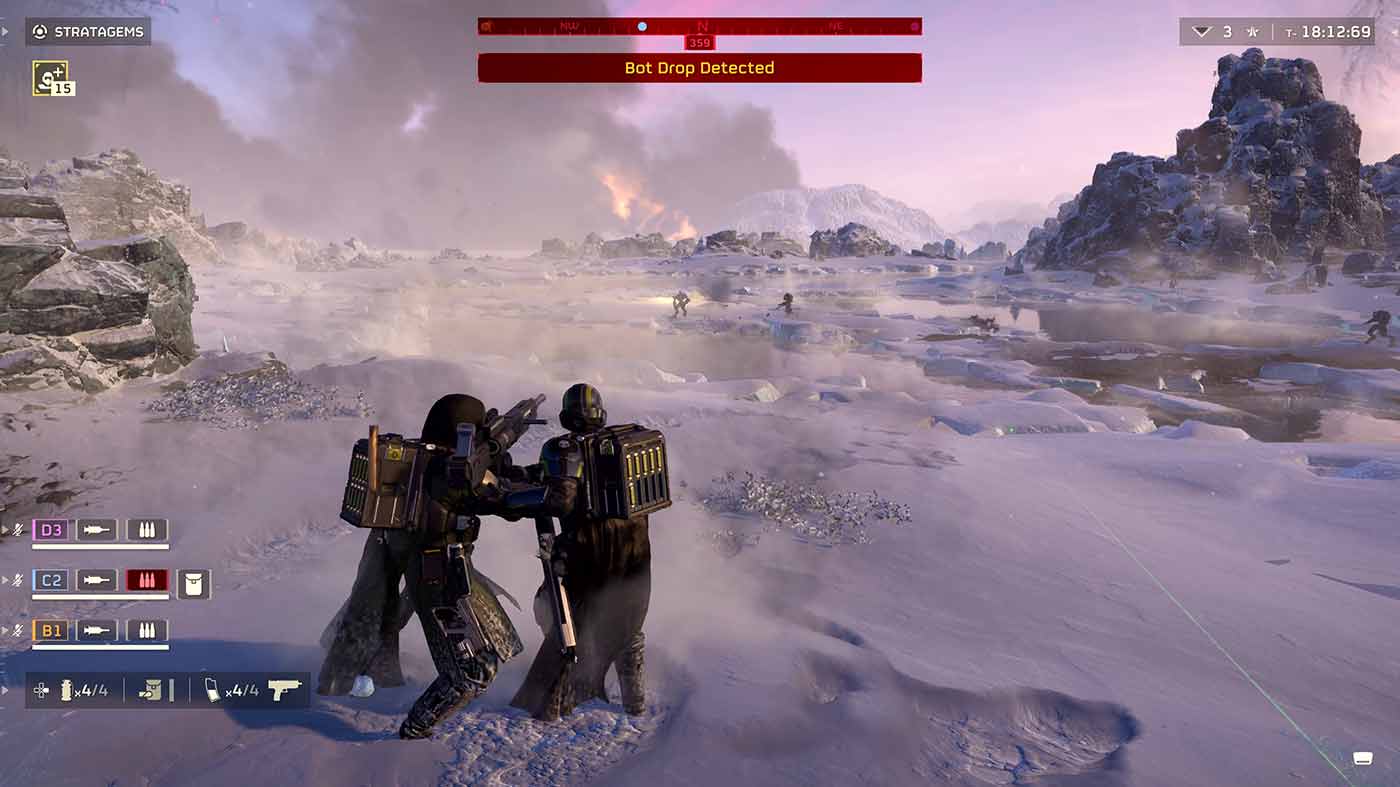
But while I’ve certainly seen my fair share of gorgeous moments borne from ill-planned drops or very unfriendly friendly fire, it was an encounter with a more intentional gag that’s been the most memorable in my time with the game so far. On discovering that players’ base of operations houses a very simple arcade-like machine with the “game” of Stratagem Hero – a play on Helldivers 2’s input-based mechanic of calling in various supports – I immediately found myself laser-focused and unwavering in attempting to land an impressive high score. I must have been at it for a good 20-odd minutes before I decided my performance had peaked and that it was time to log out. Just as I did though, a message came in from one of my PlayStation friends that contained an in-game screenshot of my character standing transfixed at the Stratagem Hero machine and the words “God’s work.”
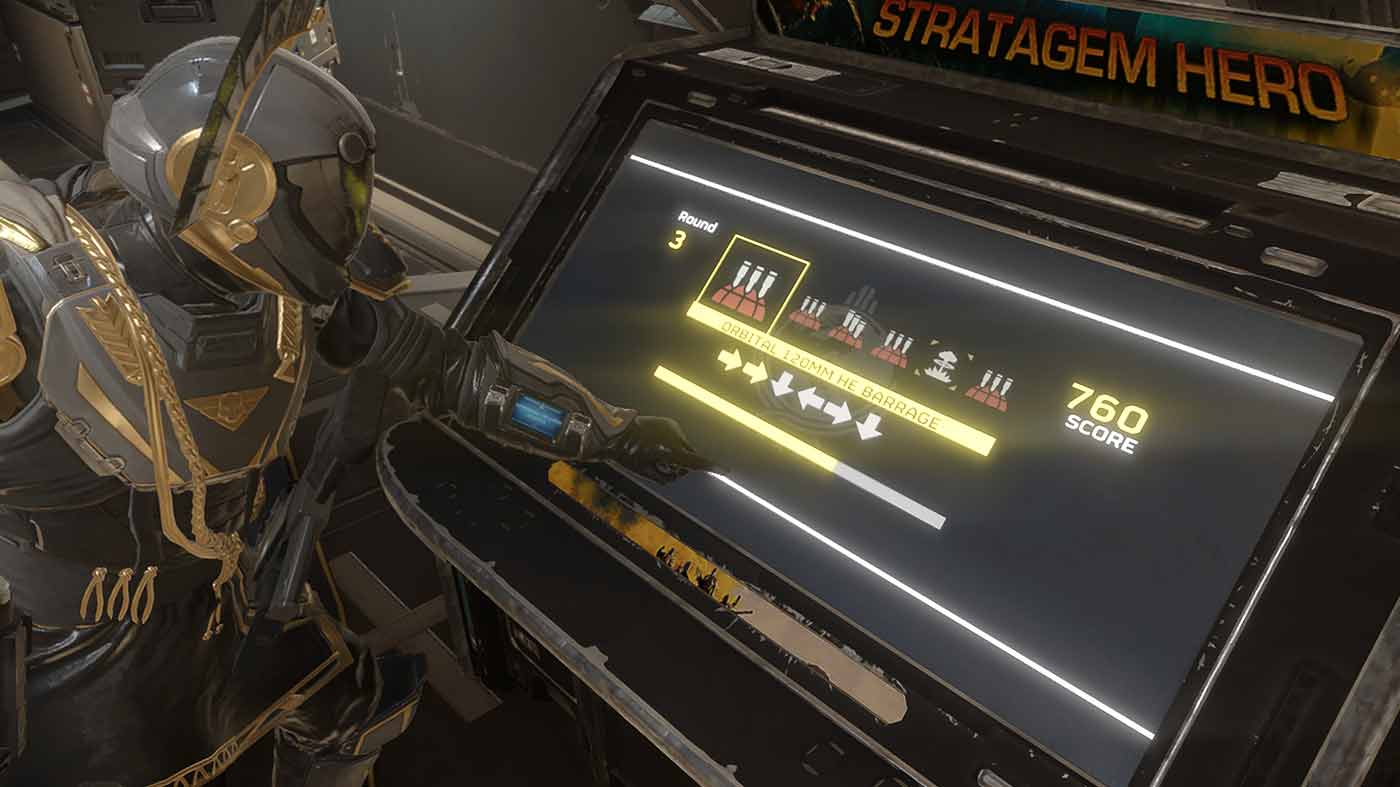
I had no idea that Mark was even present in my game, let alone quietly watching my less-than-useful contributions to Super Earth’s cause, but it just drove home the fact that there are distinct advantages to always-online games, much as I usually detest them, it’s just a case of leaning into where the fun really is and what players are looking for in these connected experiences.
The other ideal being championed by Helldivers 2, and Arrowhead, is a very intentional Respect for players’ time. Each and every time that I’ve jumped into whatever “live service” game is the current zeitgeist, the biggest reason for eventually bouncing off has been the feeling that I need to be putting regular and considerable hours into it to have any sense of payoff or progression. It’s how these games operate, and it obviously works for some, but for those of us without a heap of spare time to dedicate to a single title it can be quite prohibitive.
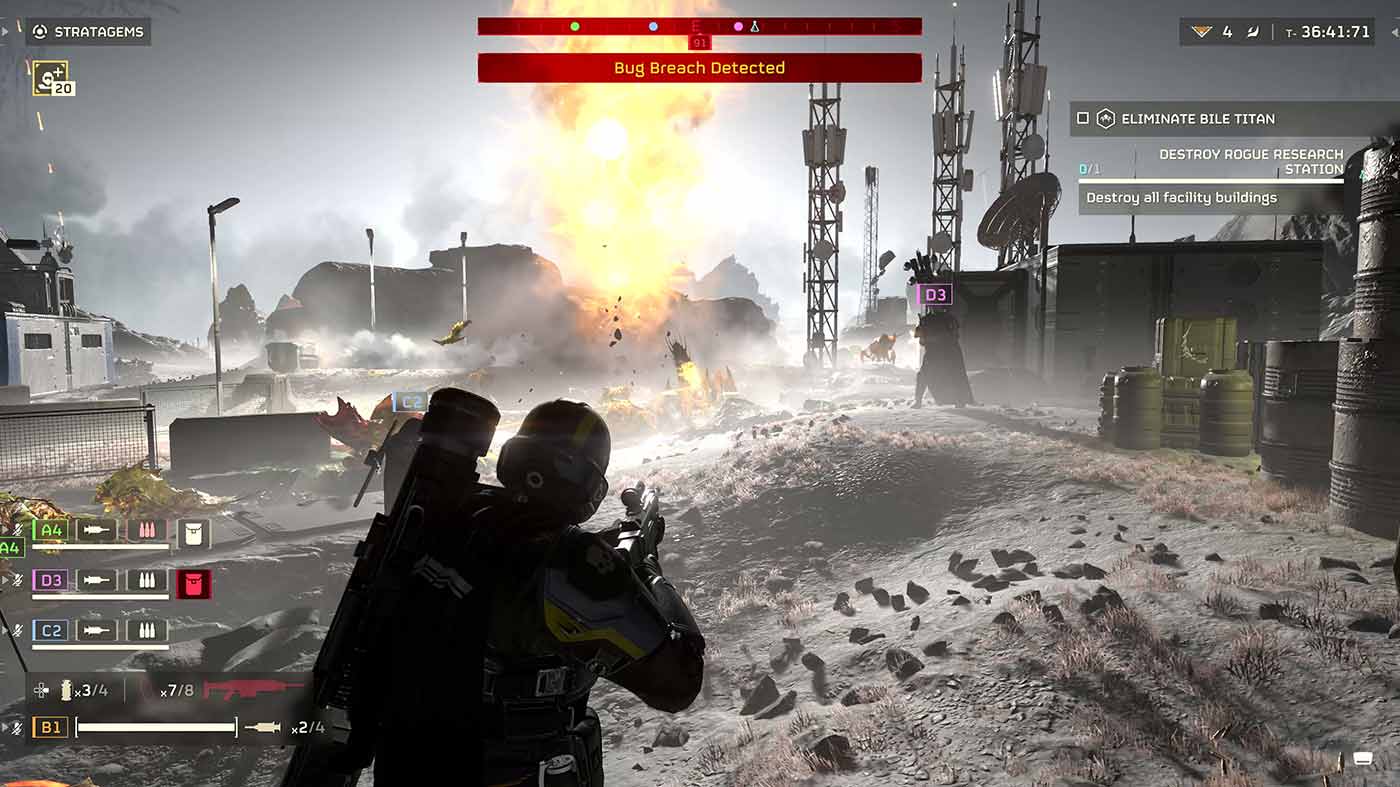
Contrast this with Helldivers 2, which is a game that I feel incredibly comfortable dipping into for an hour or two at a time with no pressure to keep that up daily or even semi-regularly to know that I’m going to keep having fun with it. That’s not to say that there’s no work involved in progressing and unlocking neat new ways to lay waste bugs, bots and blindsided buddies, but subsequent unlocks and rewards exist to give players exactly that – new and interesting ways to destroy things.
I don’t feel any kind of pressure to grind to feel like I’m keeping up with the community or the content offering, but at the same time I know that I’ll still get out what I put in, and that’s such a breath of fresh air in the landscape. At the end of the day, the moment-to-moment gameplay is so much fun, and Arrowhead has no interest in getting in the way of that just to squeeze more engagement out of you.
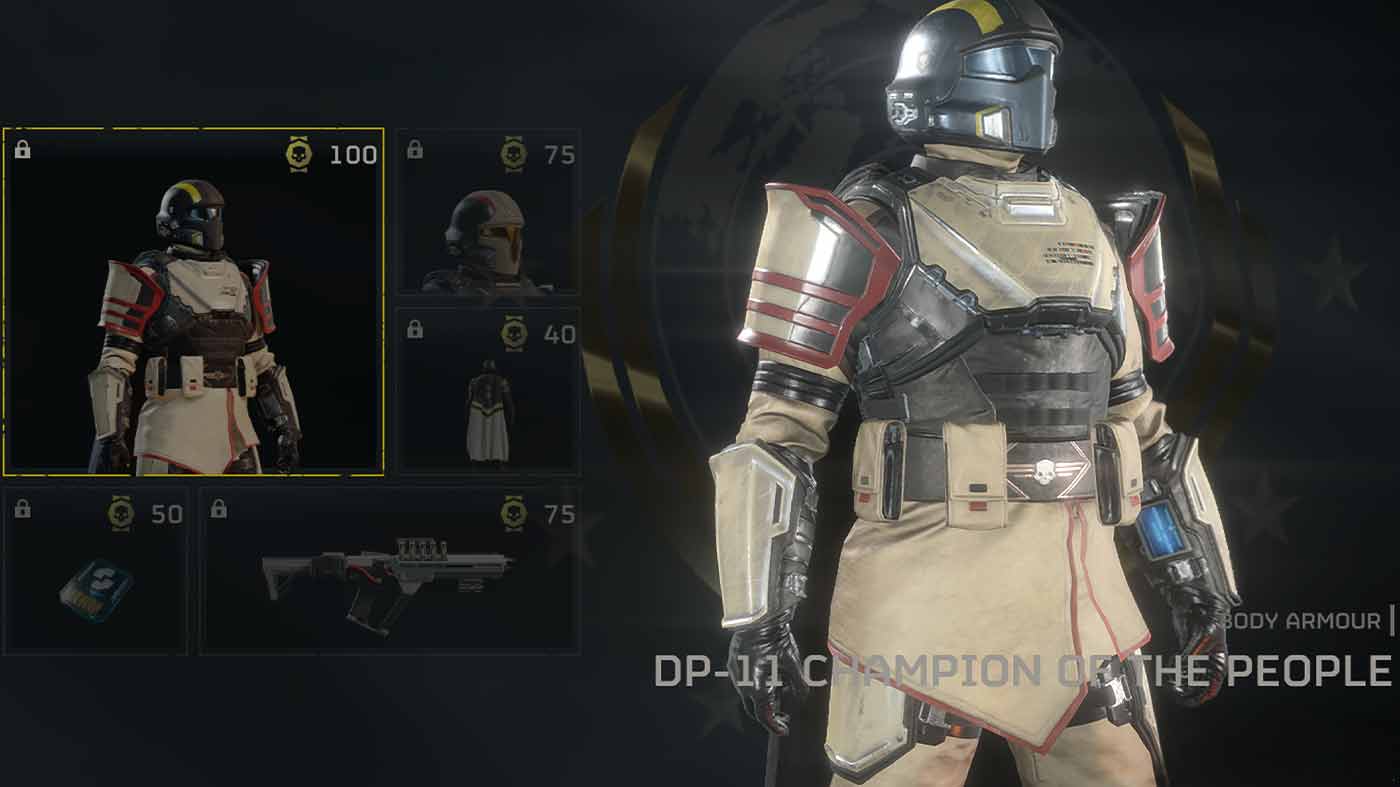
That respect for my time also manifests in the way that Helldivers 2’s monetisation efforts are not nearly as predatory as its peers. Yes, there are a bunch of currencies to manage and the ability to drop real money down in order to hasten the process, but everything feels set up to be rewarding to those who play and not just those who pay. There are a heap of opportunities to earn Super Credits beyond opening your wallet, and you have all the time in the world to work through the battle pass-esque Warbonds, which aren’t time-limited and will always be available to players to complete. I’ve already seen plenty of folks loudly and proudly say they’ve thrown extra cash at the game just because they felt good about giving the studio money, which is exactly how it should be.
Arrowhead’s CEO Johan Pilestedt has said it himself, “You have to earn the right to monetise,” and that philosophy can be felt deeply within Helldivers 2. It’s a game that dares to ask whether its players are getting value out of simply playing the game, before it even thinks to ask what kind of value it can get out of its players. And that’s going pretty well for them, I reckon.
Helldivers 2 is available now on PlayStation 5 and PC.


